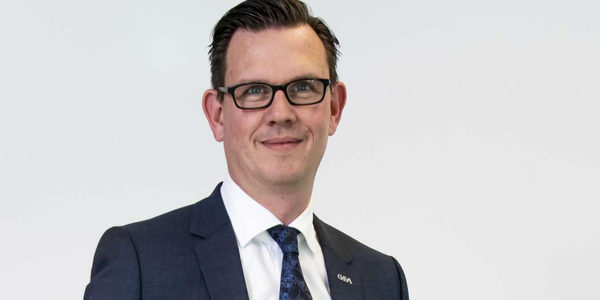SSI Schaefer reaches outside company ranks to name new CEO

Material handling equipment provider SSI Schaefer Group has named a new CEO to replace its interim leader, reaching outside the company to name industrial engineering executive Steffen Bersch to lead the company.
Bersch will join Schaefer on March 1 for a transition period and then succeed interim CEO Helmut Limberg on April 1, according to the Neunkirchen, Germany-based firm.
At his previous employer, Bersch had worked for 20 years at GEA Group AG, a Düsseldorf, Germany-based technology supplier for the food processing sector and other industries. GEA generated revenues of 4.8 billion euros in 2018 on sales of machinery, plants, process technology, and components, the company said.
Prior to leaving the company on Feb. 12, Bersch held various leadership positions, rising to become a member of the four-person executive board of GEA Group Aktiengesellschaft, where he was responsible for the liquid & powder technologies, food & healthcare technologies, and refrigeration technologies divisions, as well as global technology.
"On behalf of the entire supervisory board, I would like to thank Steffen Bersch very much for the twenty years of service he has rendered to GEA," Helmut Perlet, chairman of GEA's supervisory board, said in a release. "In a difficult market environment, he has been instrumental in driving the successful development of the Business Area Equipment and the company's service business in recent years. I very much regret his departure and wish him all the best in his future, both personal and professional."
In his new position leading Schaefer, Bersch is expected to contribute through his extensive experience in the strategic development of global corporations, as well as his track record as a successful and internationally experienced manager, Kay Mayland, chairman of the SSI Schaefer Advisory Board, said in a Feb. 18 release.
We're happy to announce that the Advisory Board of the SSI SCHAEFER Group has appointed Mr. Steffen BERSCH CEO of the SSI SCHAEFER Group. The positions of the Group's Management Board have now been effectively filled. Read more in our press release. https://t.co/O6AlgTwsg7 pic.twitter.com/nyKuGdGntJ
— SSI SCHAEFER Group (@ssischaefer_gp) February 14, 2020
Related Articles
Copyright ©2024. All Rights ReservedDesign, CMS, Hosting & Web Development :: ePublishing